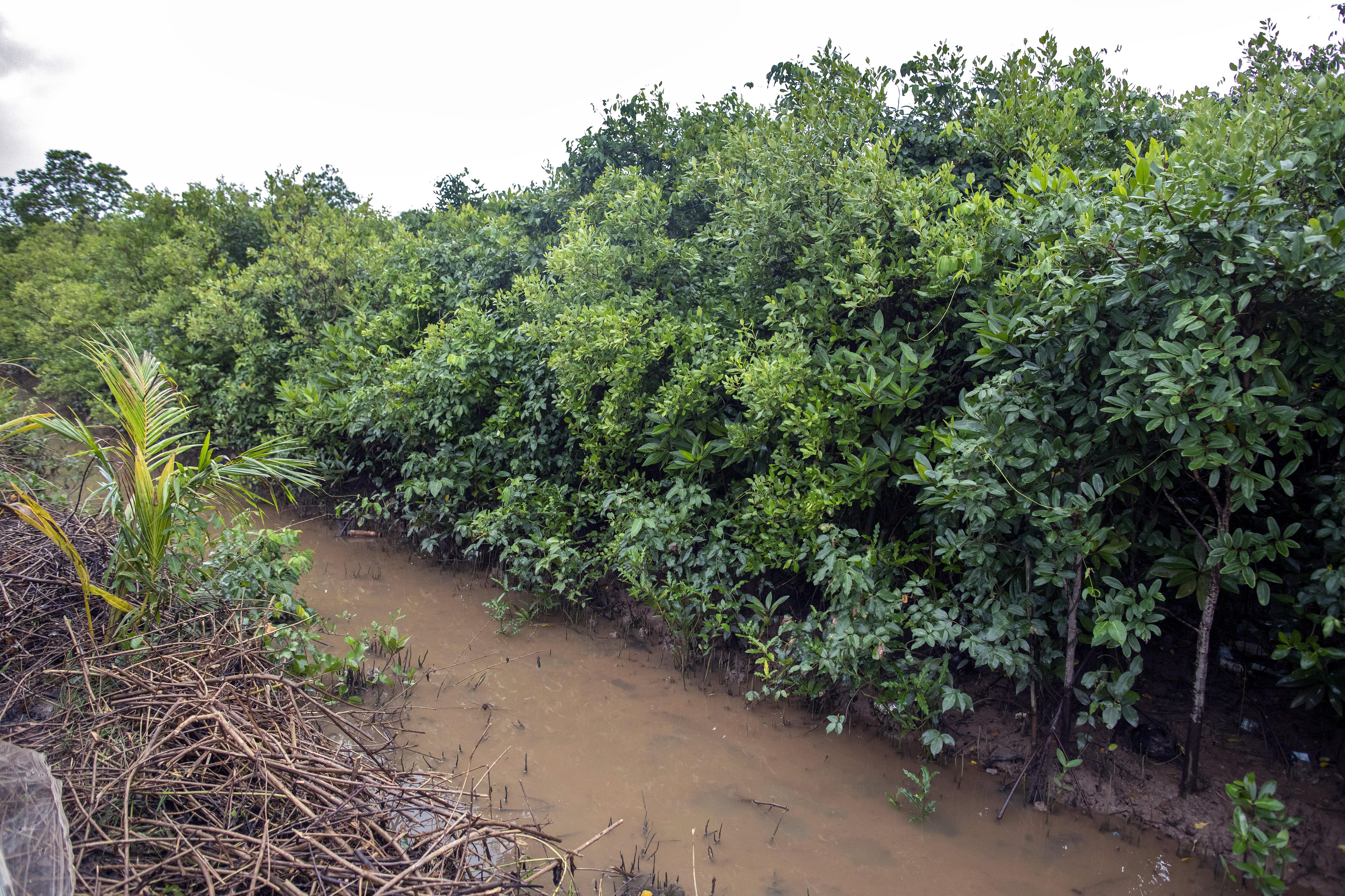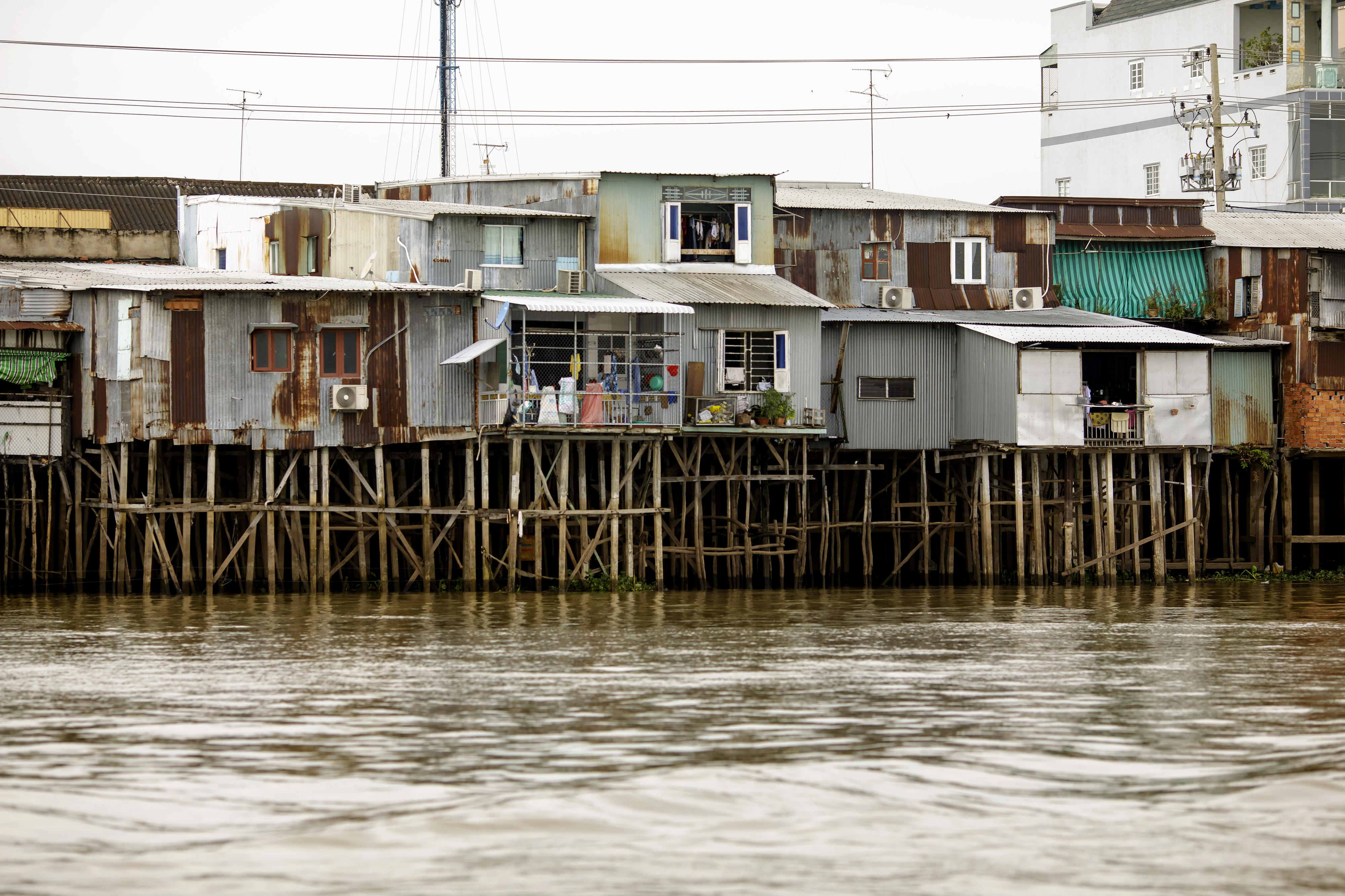Mangrove forest in Viet Nam
Copyright© Thomas Imo/photothek.net
Environment and climate Reconciling ecological, social and economic interests
The excessive exploitation of natural resources, along with air, water and soil pollution, and the uncontrolled disposal of waste have reached alarming levels. This has resulted in severe water shortage, erosion, and salinisation of the Mekong Delta.
Viet Nam also has enormous levels of plastic waste. Due to inadequate recycling, part of this waste ends up in the world's oceans through the Mekong, one of the largest rivers in the world. Carbon emissions, too, have significantly increased over the last few years. Environmental challenges in rural regions are reinforcing the rural exodus, which is in turn exacerbating problems in metropolitan areas.
Houses by the Mekong river
Putting climate action on the political agenda
In order to improve coordination between ministries and relevant stakeholders, a steering committee has been set up under the leadership of the Prime MinisteAs a result of growing environmental awareness and the visible effects of climate change, the Vietnamese government now attaches great importance to environmental protection and climate action. At the COP26 climate conference in November 2021, the Prime Minister announced that, with international support, Viet Nam wants to achieve net zero emissions by 2050. Coal is to be phased out by the late 2040s.
With a view to achieving its ambitious climate goals, Viet Nam entered into a Just Energy Transition Partnership with the G7 International Partners Group (IPG) in December 2022. This is already having making a difference in the revision of national climate strategies and decarbonisation plans. In order to improve coordination between all stakeholders, a steering committee has been set up under the leadership of the Prime Minister.
As at: 19/01/2024

